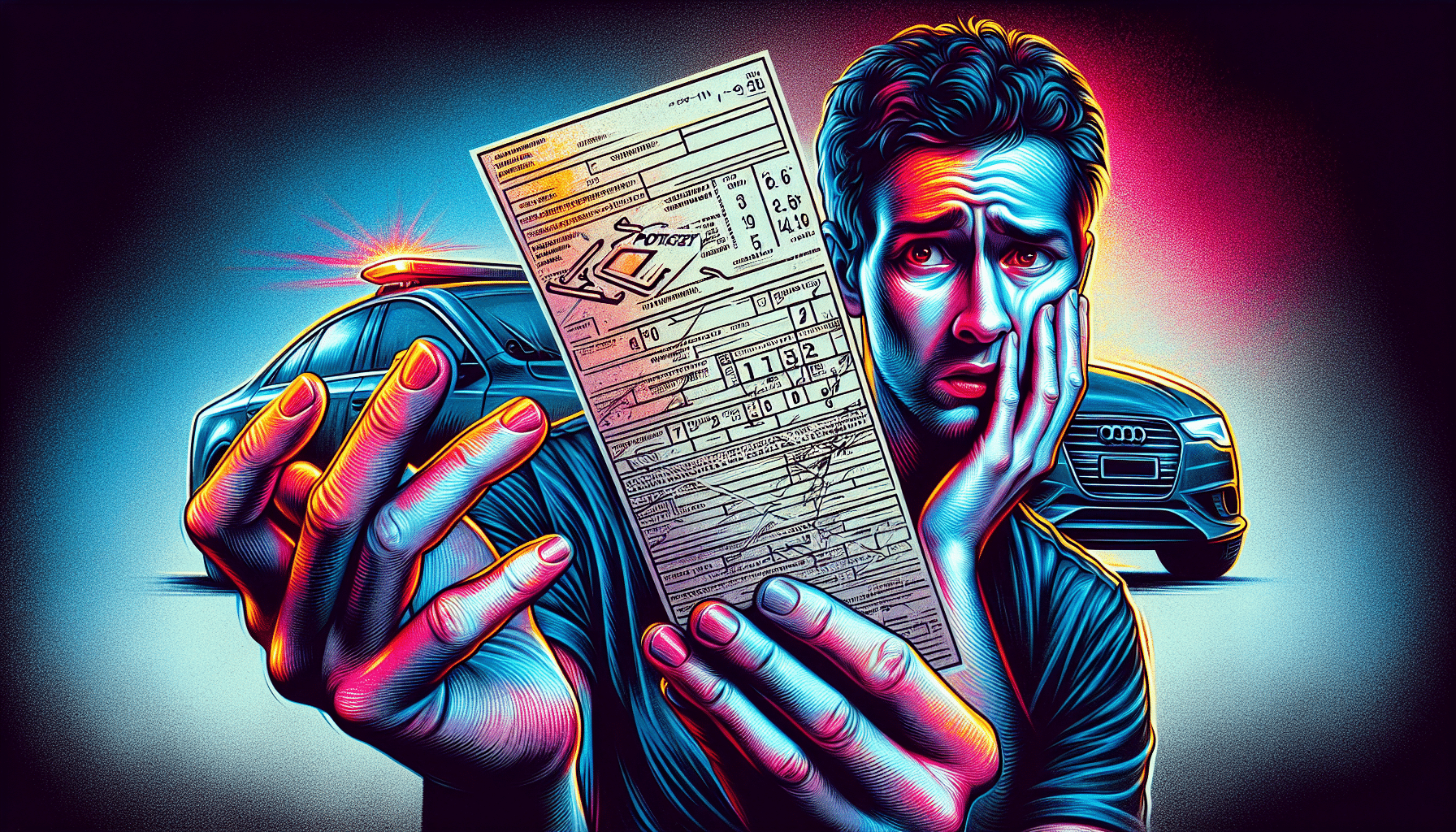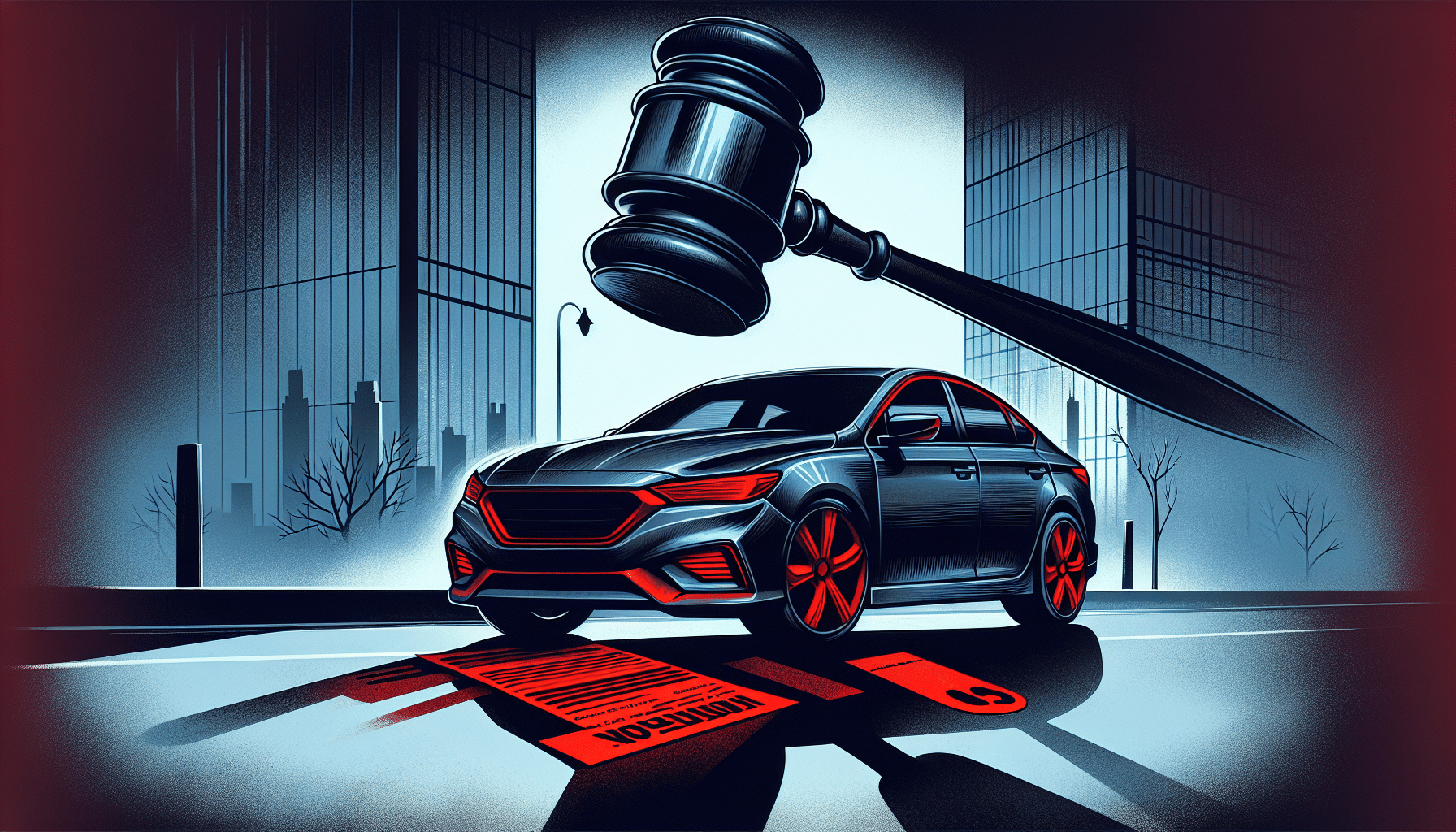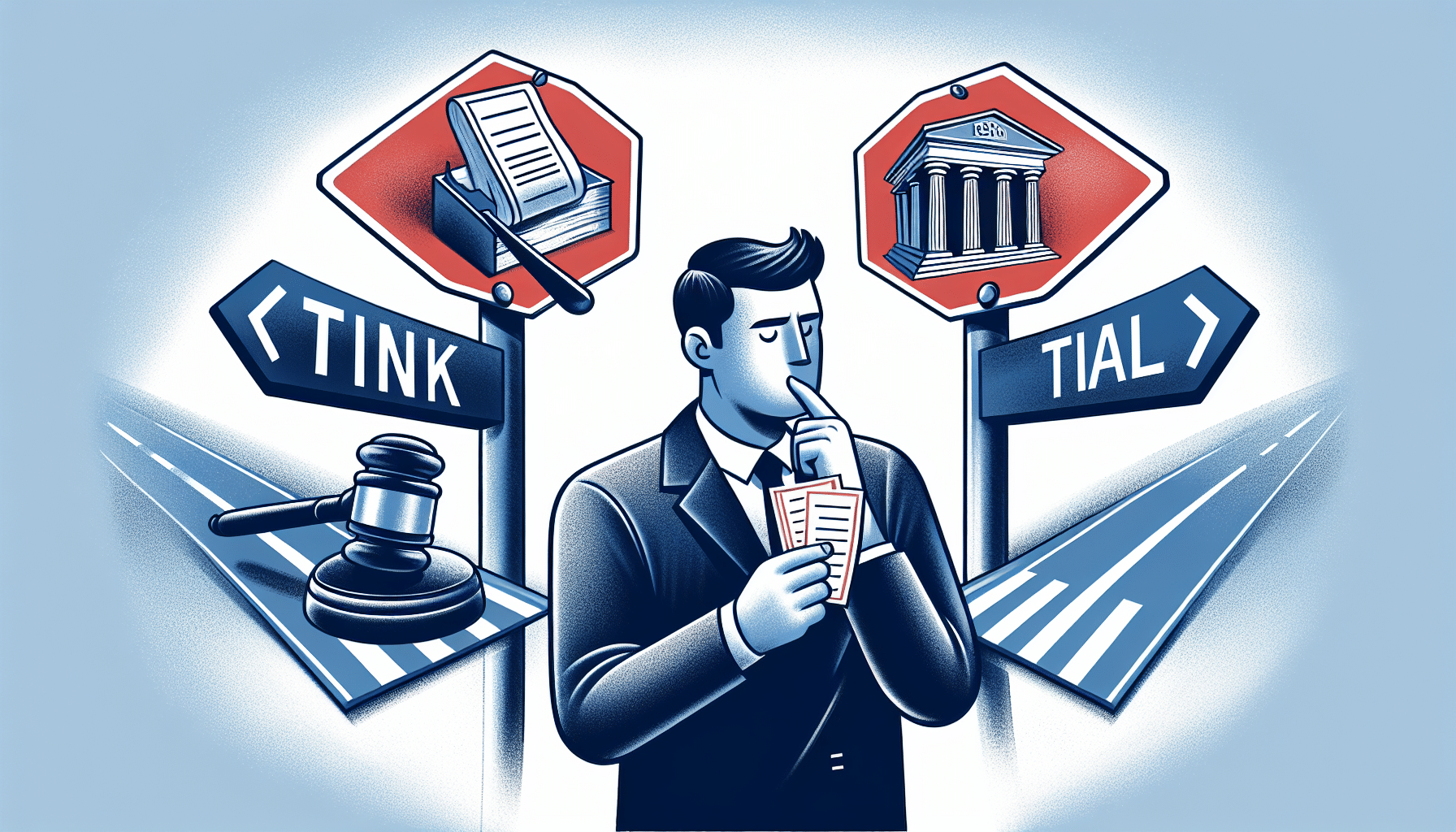After receiving a speeding ticket, what’s next can seem daunting. This article outlines the immediate actions to take after receiving speeding ticket.
What’s next: verifying your ticket’s accuracy, understanding payment and court processes, and grasping the ticket’s potential impact on your driving record and insurance.
Here, you’ll get the information you need to navigate the post-speeding ticket steps clearly and confidently, minimizing stress and confusion.
Key Takeaways
- Carefully verify personal and violation details on the ticket for accuracy, understand payment and court instructions, and recognize the potential for increased insurance rates and lasting impact on your driving record.
- Assess the financial and long-term implications of a speeding ticket, considering factors such as the severity of the infraction, potential increases in insurance premiums, and the duration points may remain on your driving record.
- Explore resolution options for a speeding ticket including paying the fine, contesting the charges in traffic court, plea bargaining for reduced charges, or considering legal representation especially in serious cases.
Immediate Steps Post-Speeding Ticket

Receiving a speeding ticket can be overwhelming. However, prompt and correct action can greatly influence the ticket’s outcome, which might result in a fine, a court appearance, or an impact on your driving record.
Grasping the details of the ticket, payment, and court instructions forms a crucial first step. It’s not merely about the payable amount, but also comprehending the violation’s nature and potential legal implications. Let’s examine these initial steps further.
Verify the Details on Your Ticket
Accuracy is key when dealing with legal documents, and a traffic ticket, also known as a traffic citation, is no exception. Making sure your personal information and the violation details on your ticket are accurate forms an essential step. Mistakes can happen, and inaccuracies can sometimes work in your favor.
Check to see if your name, address, and driver’s license number on your driver’s license are correct. Also, verify the details of the moving violation, including the date, time, and location, as well as the specific speed limit you allegedly exceeded. If there are any discrepancies, these could be grounds to contest your ticket in court.
Understand Your Ticket’s Payment and Court Instructions
After confirming the details on your ticket, you need to comprehend the payment and court instructions next. These will outline the protocol for dealing with the ticket, including how and when to pay the fine and if a court appearance is required.
Speeding ticket payment options often include online, by phone, or in-person at the local municipal courthouse. Noting the due date for payment to steer clear of extra penalties is crucial. If you decide to contest the ticket, understanding the court instructions, including the preliminary court date and location, is vital.
Assessing Your Situation

Once the immediate steps are taken, it’s time to reassess your situation. This involves understanding how the speeding ticket impacts your driving record and insurance rates. The severity of the violation and your driving history can greatly influence these factors.
Depending on the speed you were going, your driving record could be affected for three to seven years, or even permanently in some cases. Additionally, your insurance rates could see a significant increase. Let’s look at these impacts more closely.
Impact on Your Driving Record
A speeding ticket can have a lasting impact on your driving record. This record is a history of your driving behavior, and any violations, such as speeding tickets, get recorded. This record can be accessed by insurance companies and can influence your insurance rates.
Typically, a speeding ticket leads to points being added to your driving record. The number of points depends on the severity of your speeding, such as the amount by which you exceeded the speed limit. These points can stay on your record for three to seven years, depending on your state’s regulations.
The Cost of Speeding – Fines and Insurance Rates
In addition to the immediate fine, a speeding ticket can have significant financial implications. These can range from court costs to increased insurance premiums, making it an expense that extends far beyond the initial penalty.
On average, a speeding ticket can result in:
- an auto insurance rate increase of approximately $380 per year, possibly lasting for three to five years
- the increase depends on factors such as the severity of the offense, your overall record, and the time since your last violation
- fines for speeding can vary greatly, with some states imposing hefty penalties for serious offenses
Options to Resolve Your Speeding Ticket

After evaluating your situation, you have to determine the next steps for resolving your speeding ticket. There are several options available, including paying the fine, contesting the ticket in traffic court, or even attending traffic school.
Each option has its pros and cons, and the best choice depends on your specific circumstances. Let’s explore these options in more detail, starting with the simplest route – paying the fine.
Pay the Fine – Quick Resolution, Long-Term Effects
Settling the fine for a speeding ticket provides a swift resolution. It’s as simple as making a payment online, by mail, in person, or over the phone, depending on the jurisdiction where the ticket was issued. Once the fine is paid, the case is typically considered closed and the infraction is added to your driving record.
However, be aware that settling the fine can bear long-term consequences. This action generally adds points to your driving record, which can lead to higher insurance premiums. Most insurance companies reassess a policyholder’s rates after a speeding violation is recorded on their driving record, which can significantly increase the cost of car insurance.
Contesting the Ticket – Preparing for Traffic Court
Another option is to contest the ticket. This involves preparing for a traffic court appearance and presenting evidence to challenge the charges. It’s important to note that this option requires a higher level of commitment and preparation, but it could potentially lead to reduced fines or even getting your ticket dismissed.
In traffic court, the government’s evidence usually consists of the officer’s testimony about the violation of traffic laws. It’s essential to gather all possible evidence, including:
- Eyewitness statements
- Diagrams
- Photographic evidence
- GPS data
This evidence can be used to challenge the officer’s testimony. Your defense strategies can include disputing the officer’s judgment or observation, arguing ‘mistake of fact’, or claiming necessity for exceeding the speed limit.
Legal Representation: Do You Need a Traffic Ticket Attorney?
In certain situations, contemplating hiring a traffic ticket attorney may be beneficial. This is especially true for serious cases with hefty fines or those that might lead to license suspension or revocation.
Securing legal representation can substantially enhance your prospects for a favorable outcome. A traffic ticket attorney can help collect evidence, develop a strong defense, and guide you through the legal process. Remember, the goal is not just to resolve the ticket but also to minimize its impact on your driving record and insurance rates.
Mitigating the Damage – Negotiating with the Judge
Negotiating with the judge is another method to mitigate the impact of a speeding ticket. This involves plea bargaining, which can lead to reduced charges or lower fines. This often entails pleading guilty to a less severe charge or to one of multiple charges.
However, it’s important to remember that the judge makes the final decision to accept or reject the proposed agreement. Successful negotiation could result in:
- paying a reduced fine without the violation appearing on your driving record
- choosing a driving course while paying all or part of the fine
- being granted additional time to pay the fine.
Long-Term Considerations After Resolving Your Ticket
Several long-term considerations should be kept in mind after settling your speeding ticket. The focus should shift from dealing with the current ticket to avoiding future ones. This involves practicing safe driving habits and considering a driver improvement course.
Adhering to or staying below the posted speed limit and exhibiting courteous driving behaviors can aid in avoiding future tickets. Additionally, a driver improvement course, such as a defensive driving course or when you attend traffic school, can help you avoid costly fines in the future and support the development of better driving habits for long-term safety.
Summary
In conclusion, receiving a speeding ticket can be a stressful experience, but understanding the process and knowing your options can make it less daunting. From verifying the details on your ticket, assessing its impact, exploring resolution options to considering long-term implications, there’s a lot to consider.
Remember, each situation is unique, and the best course of action depends on your specific circumstances. Stay informed, drive safely, and remember, when in doubt, seeking legal advice can be a valuable resource.
Frequently Asked Questions
How long does a speeding ticket stay on my driving record?
A speeding ticket can stay on your driving record for three to seven years, or even permanently in some cases, depending on the state’s regulations. It’s important to be cautious and follow traffic laws to maintain a clean driving record.
How much will my insurance rates increase after a speeding ticket?
Your insurance rates could increase by around $380 per year for three to five years after getting a speeding ticket.
What are the options to resolve a speeding ticket?
You can resolve a speeding ticket by paying the fine, contesting the ticket in traffic court, or attending traffic school. These are the main options available.
Do I need a traffic ticket attorney?
Yes, you should consider hiring a traffic ticket attorney, especially for serious cases with hefty fines or potential license suspension.
Can I negotiate with the judge to reduce my fine or charges?
Yes, plea bargaining can potentially lead to reduced charges or fines, but the judge ultimately makes the final decision.




